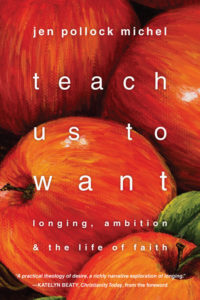Today marks the official release of my new book, Write Better. To give you a taste of what’s in store, here is an excerpt from the preface.
Two of my sons, Phil and Dave, ran cross-country in high school. These grueling three-mile races were not on perfectly flat, machine-fabricated ovals but up hills, over ruts, through woods. In heat and cold, rain and wind I, like other parents, came to urge them and their teammates on.
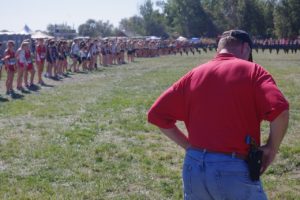 Sometimes I’d run from one part of the course to another, taking a shortcut, so that several times during a race I could yell encouragement to press on, to not let down, to remember their training. Once when I was dashing from one place to another, a student cheering for another school almost slammed into me. As he flew by in another direction, he said, “Sorry, Coach.” I’ve never felt prouder to be mistakenly identified.
Sometimes I’d run from one part of the course to another, taking a shortcut, so that several times during a race I could yell encouragement to press on, to not let down, to remember their training. Once when I was dashing from one place to another, a student cheering for another school almost slammed into me. As he flew by in another direction, he said, “Sorry, Coach.” I’ve never felt prouder to be mistakenly identified.
For over forty years I’ve trained, guided, and cheered on hundreds of writers. I’ve made suggestions for what to write about, how to write, and how to revise. I’ve encouraged and praised, cajoled and critiqued. In every case I have been stimulated by a desire to help people express their ideas as clearly and powerfully as possible. That is the motivation behind this book.
I’ve also done a fair bit of my own writing, trying to follow my own advice as much as possible. What I have realized in the process is how hard it is to write. It requires work and determination. It means saying no to other things I want to do or fitting it around things I must do (like my job). I have to overcome discouragement when progress is slow and when I don’t meet my own standards. As a result, I have great admiration for people who write, people like you.
In this book I offer some of the lessons I’ve learned in reading, writing, and editing nonfiction. If I can lighten your load as a writer of books, articles, blogs, newsletters, or manuals, and speed you on your way, I will be content.
Students and those who just want to write better may also find help in these pages. I hope you will feel free to take what is of value here and lay aside the rest till later.
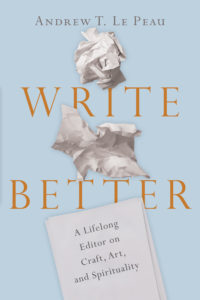 I’ve divided my material into three parts. Part one on craft is about mastering certain skills such as finding strong openings and closings, staying focused on an audience, creating a clear structure, being persuasive, revising well, and developing good titles.
I’ve divided my material into three parts. Part one on craft is about mastering certain skills such as finding strong openings and closings, staying focused on an audience, creating a clear structure, being persuasive, revising well, and developing good titles.
Part two is on art, which is notoriously difficult to define. I use the term a bit reluctantly because we can misapply it to writing pretentiously or can misunderstand it as being so subjective that nothing practical can be said about it. Rather than “high art” in the sense of historical or cultural artifacts, I mostly mean human creations that speak deeply to the full human experience (heart, soul, mind, body as well as our social and historical dimensions). Sentimentality and cliché need not apply. I seek to demystify some aspects of art in writing by considering strategies that can nudge us along the continuum toward fresher, more vital, and perhaps more beautiful expressions of our human condition.
Part three is on the spirituality of writing. Here I do not focus on the spiritual content of what we write so much as on our spirituality as writers. What affect does the act of writing have on my life in God?
While this book is about writing better and not about publishing or how to get published, in the appendixes I try to pull back the curtain of mystery a bit from this often unseen world. How do you find an agent? What is involved in promotion? How does coauthoring work? What about the self-publishing option? And is there any way to make sense of copyright? Also at the back are listed further online resources (found at ivpress.com/write-better), including questions and exercises for students.
I like order, so I would tend to read a book like this straight through. But you can skip around if you wish, going from one chapter to another as your needs or interests lead you.
Photo credit: Pixabay extremis
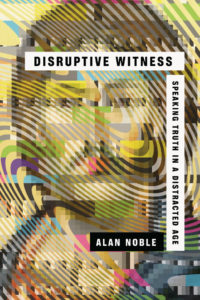 What makes engaging others about religion even more difficult is our culture of distraction. Social media, entertainment, busy schedules and more all keep us from reflecting on ideas, on substantive issues, on our own lives. Both people of faith and people of no faith rarely stop long enough to wonder about our path in life. Yes, I too reflexively take a dose of social media even in the bathroom.
What makes engaging others about religion even more difficult is our culture of distraction. Social media, entertainment, busy schedules and more all keep us from reflecting on ideas, on substantive issues, on our own lives. Both people of faith and people of no faith rarely stop long enough to wonder about our path in life. Yes, I too reflexively take a dose of social media even in the bathroom.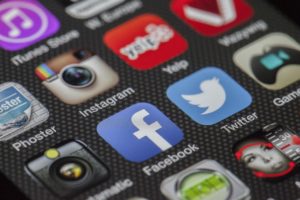 The second part of the book looks at practices we can engage in to break or disrupt these forces—personally, as a church, and as we interact with culture. These are not suggestions for evangelism as we might typically think of them. They are more like spiritual disciplines to reorient our own lives before (or as) we engage with those outside God’s family. I could wish for more here, but Noble gives us a necessary beginning.
The second part of the book looks at practices we can engage in to break or disrupt these forces—personally, as a church, and as we interact with culture. These are not suggestions for evangelism as we might typically think of them. They are more like spiritual disciplines to reorient our own lives before (or as) we engage with those outside God’s family. I could wish for more here, but Noble gives us a necessary beginning.
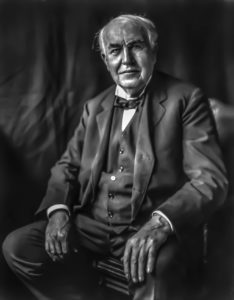 And how do original thinkers work? From Beethoven to Edison to Picasso they outproduced their peers. Each is famous for several works of genius. What is little known is the thousands of works they generated that are forgotten. Producing so much in quantity increased their odds that a few would be landmark creations.
And how do original thinkers work? From Beethoven to Edison to Picasso they outproduced their peers. Each is famous for several works of genius. What is little known is the thousands of works they generated that are forgotten. Producing so much in quantity increased their odds that a few would be landmark creations.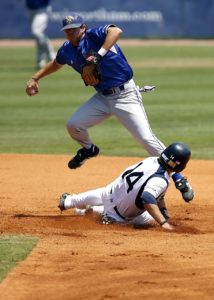 The author’s definition of an original as someone who is different or inventive is not much more than a tautology. He would have been better off to concretely define creativity as combining two things or ideas which hadn’t been joined before or by combining them in a new way.
The author’s definition of an original as someone who is different or inventive is not much more than a tautology. He would have been better off to concretely define creativity as combining two things or ideas which hadn’t been joined before or by combining them in a new way.
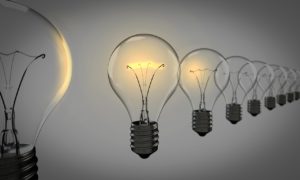 Creativity is not just a moment, however. The authors say it can take weeks, months or years to work out an idea. Creativity requires perseverance and follow through to see if the idea can become reality. That’s Wallas’s fourth stage (verification).
Creativity is not just a moment, however. The authors say it can take weeks, months or years to work out an idea. Creativity requires perseverance and follow through to see if the idea can become reality. That’s Wallas’s fourth stage (verification). Lucy Stone launched the women’s rights movement in 1851, inspiring thousands to join the cause for women’s right to vote, work, receive an education, and own property. Susan B. Anthony and Elizabeth Cady Stanton were among her early followers. But after years of leading together, in 1869 Anthony and Stanton split from Stone, nearly causing the collapse of the movement. What happened?
Lucy Stone launched the women’s rights movement in 1851, inspiring thousands to join the cause for women’s right to vote, work, receive an education, and own property. Susan B. Anthony and Elizabeth Cady Stanton were among her early followers. But after years of leading together, in 1869 Anthony and Stanton split from Stone, nearly causing the collapse of the movement. What happened?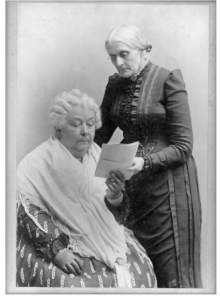 Anthony and Stanton were scandalized. But their differences didn’t stop there. “Stone was committed to campaigning at the state level; Anthony and Stanton wanted a federal constitutional amendment. Stone involved men in her organization; Anthony and Stanton favored an exclusively female membership. Stone sought to inspire change through speaking and meetings; Anthony and Stanton were more confrontational, with Anthony voting illegally and encouraging other women to follow suit.” (121)
Anthony and Stanton were scandalized. But their differences didn’t stop there. “Stone was committed to campaigning at the state level; Anthony and Stanton wanted a federal constitutional amendment. Stone involved men in her organization; Anthony and Stanton favored an exclusively female membership. Stone sought to inspire change through speaking and meetings; Anthony and Stanton were more confrontational, with Anthony voting illegally and encouraging other women to follow suit.” (121)
 Grant hooks us by putting two mysteries in front of us which we actively try to solve ourselves before the author reveals the answers. But he doesn’t stop there.
Grant hooks us by putting two mysteries in front of us which we actively try to solve ourselves before the author reveals the answers. But he doesn’t stop there.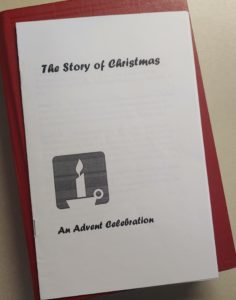 Once each December we have invited about twenty friends, neighbors, coworkers, and their children to our home for an evening. Since usually they don’t all know each other, we take a few minutes for everyone to introduce themselves and how they are connected to our household.
Once each December we have invited about twenty friends, neighbors, coworkers, and their children to our home for an evening. Since usually they don’t all know each other, we take a few minutes for everyone to introduce themselves and how they are connected to our household. In the middle we pause to let people share Christmas or holiday memories and what it all means to them. Some talk about family traditions and some about their faith experiences. The evening closes with dessert and coffee, sharing cookies and other treats that our friends have brought.
In the middle we pause to let people share Christmas or holiday memories and what it all means to them. Some talk about family traditions and some about their faith experiences. The evening closes with dessert and coffee, sharing cookies and other treats that our friends have brought. Secure endorsements from people who already have platforms. Then present those along with your proposal. These can be previously published authors, well-known speakers or bloggers, leaders in organizations related to the topic of your book, or professors at seminaries or colleges. If you know people like that, ask them to read your manuscript or proposal with an eye toward possibly offering a two- or three-sentence commendation should they find it worthwhile.
Secure endorsements from people who already have platforms. Then present those along with your proposal. These can be previously published authors, well-known speakers or bloggers, leaders in organizations related to the topic of your book, or professors at seminaries or colleges. If you know people like that, ask them to read your manuscript or proposal with an eye toward possibly offering a two- or three-sentence commendation should they find it worthwhile.  Sometimes I’d run from one part of the course to another, taking a shortcut, so that several times during a race I could yell encouragement to press on, to not let down, to remember their training. Once when I was dashing from one place to another, a student cheering for another school almost slammed into me. As he flew by in another direction, he said, “Sorry, Coach.” I’ve never felt prouder to be mistakenly identified.
Sometimes I’d run from one part of the course to another, taking a shortcut, so that several times during a race I could yell encouragement to press on, to not let down, to remember their training. Once when I was dashing from one place to another, a student cheering for another school almost slammed into me. As he flew by in another direction, he said, “Sorry, Coach.” I’ve never felt prouder to be mistakenly identified.
 Responses in both parts should be specific (an apt word choice or metaphor, an aspect of structure, a strong illustration, a good use of building drama, etc.). “Something I thought was strong was . . .” is a good way to begin.
Responses in both parts should be specific (an apt word choice or metaphor, an aspect of structure, a strong illustration, a good use of building drama, etc.). “Something I thought was strong was . . .” is a good way to begin.  Certainly gray lines can appear when it comes to, for example, “Was the writing persuasively argued?” That can lead to comments like, “Well, I wasn’t persuaded because I think X.” Soon we are diving into the deep waters of content.
Certainly gray lines can appear when it comes to, for example, “Was the writing persuasively argued?” That can lead to comments like, “Well, I wasn’t persuaded because I think X.” Soon we are diving into the deep waters of content. 
